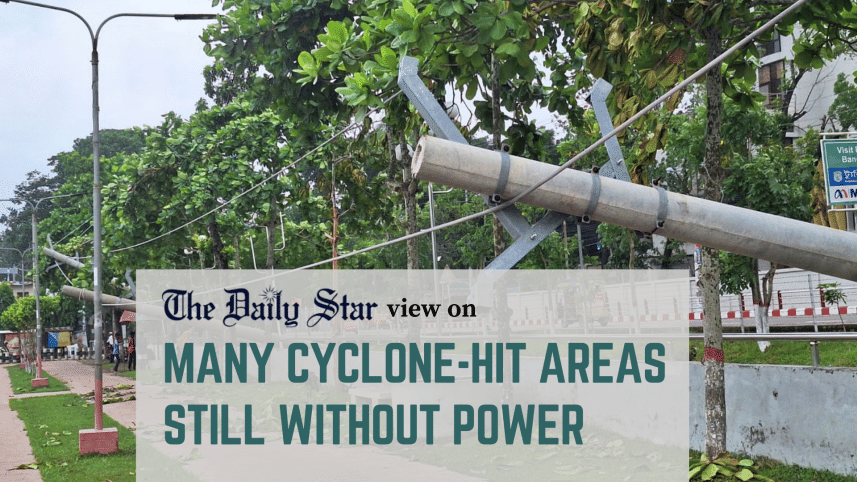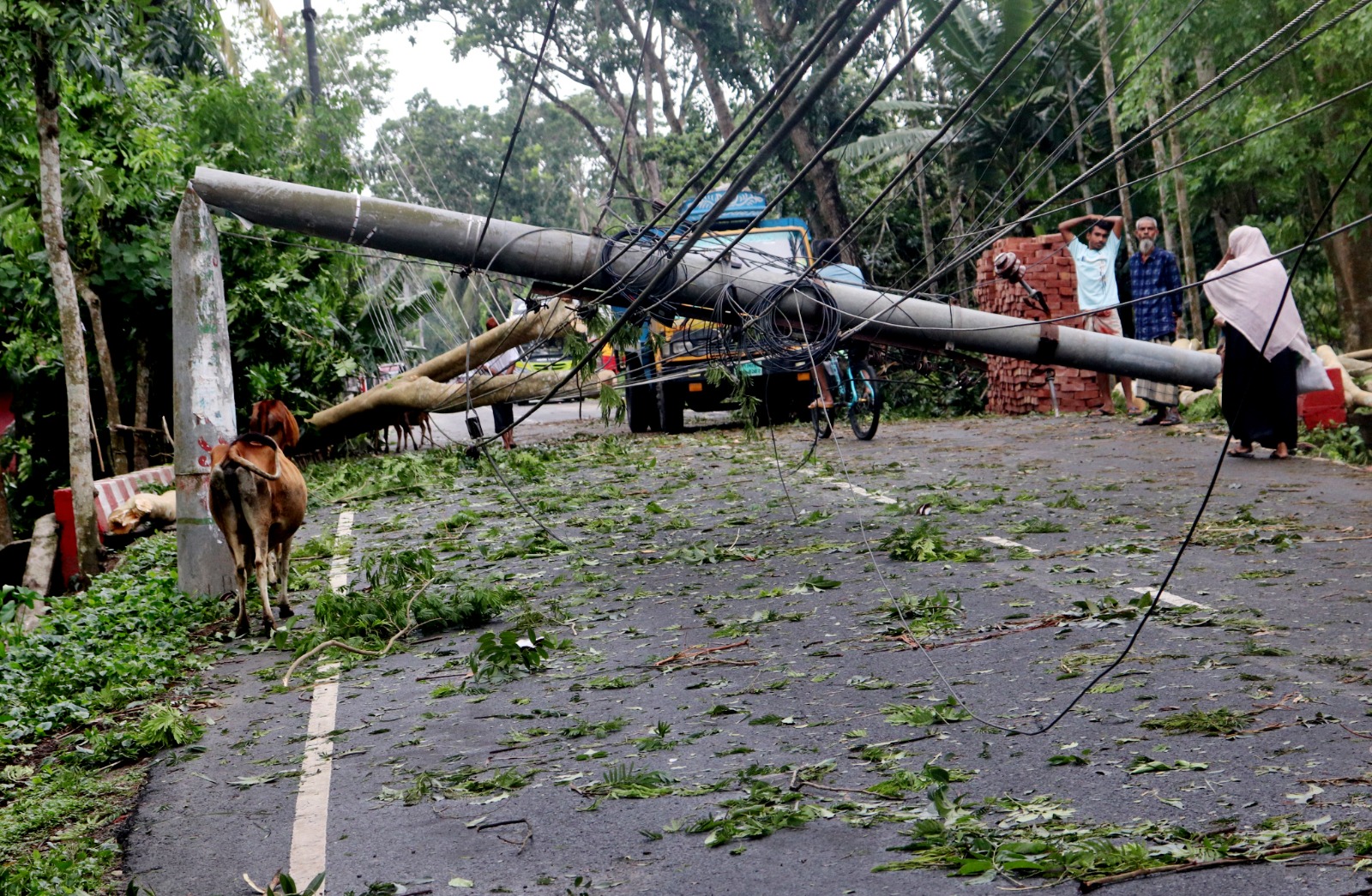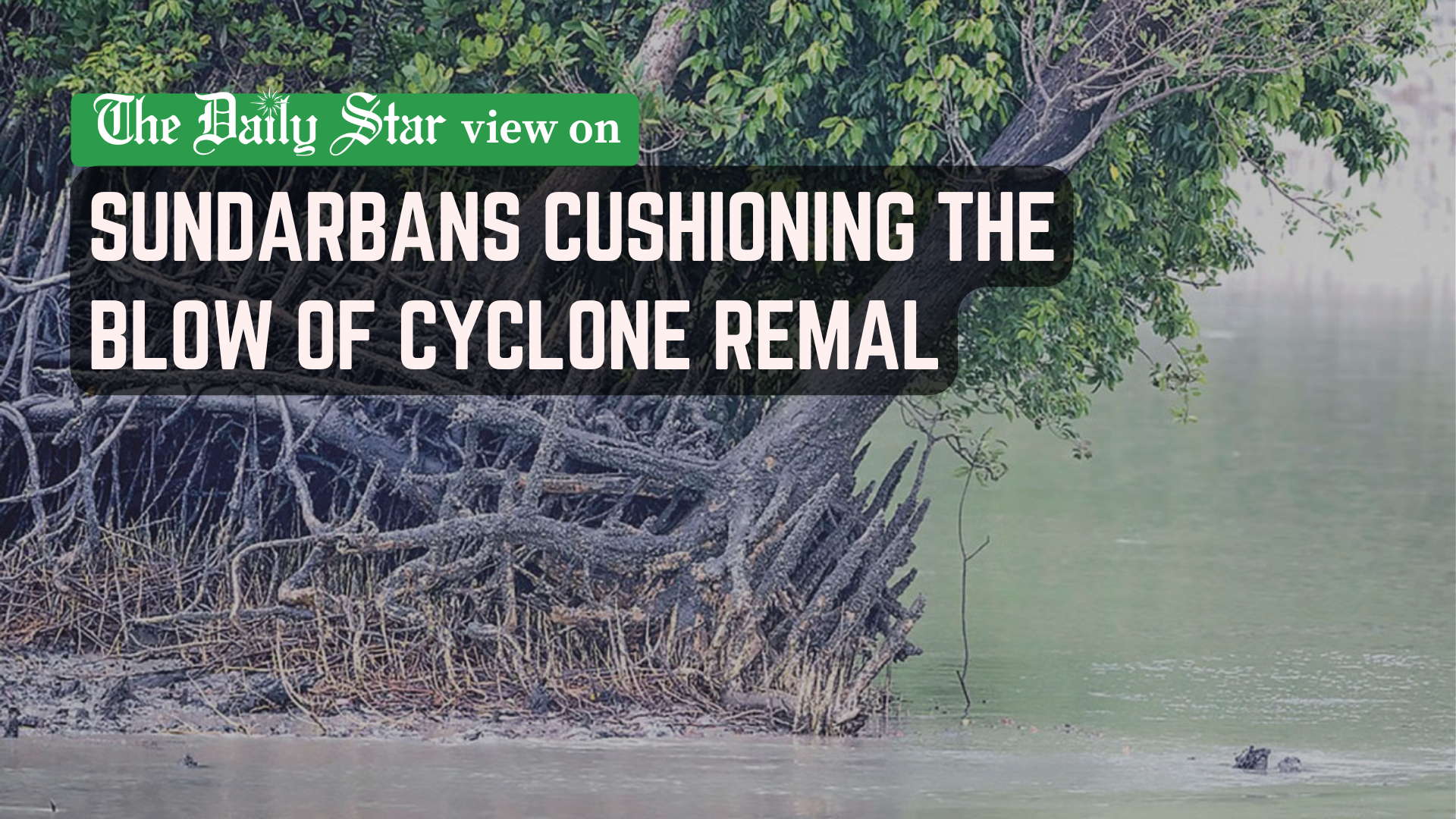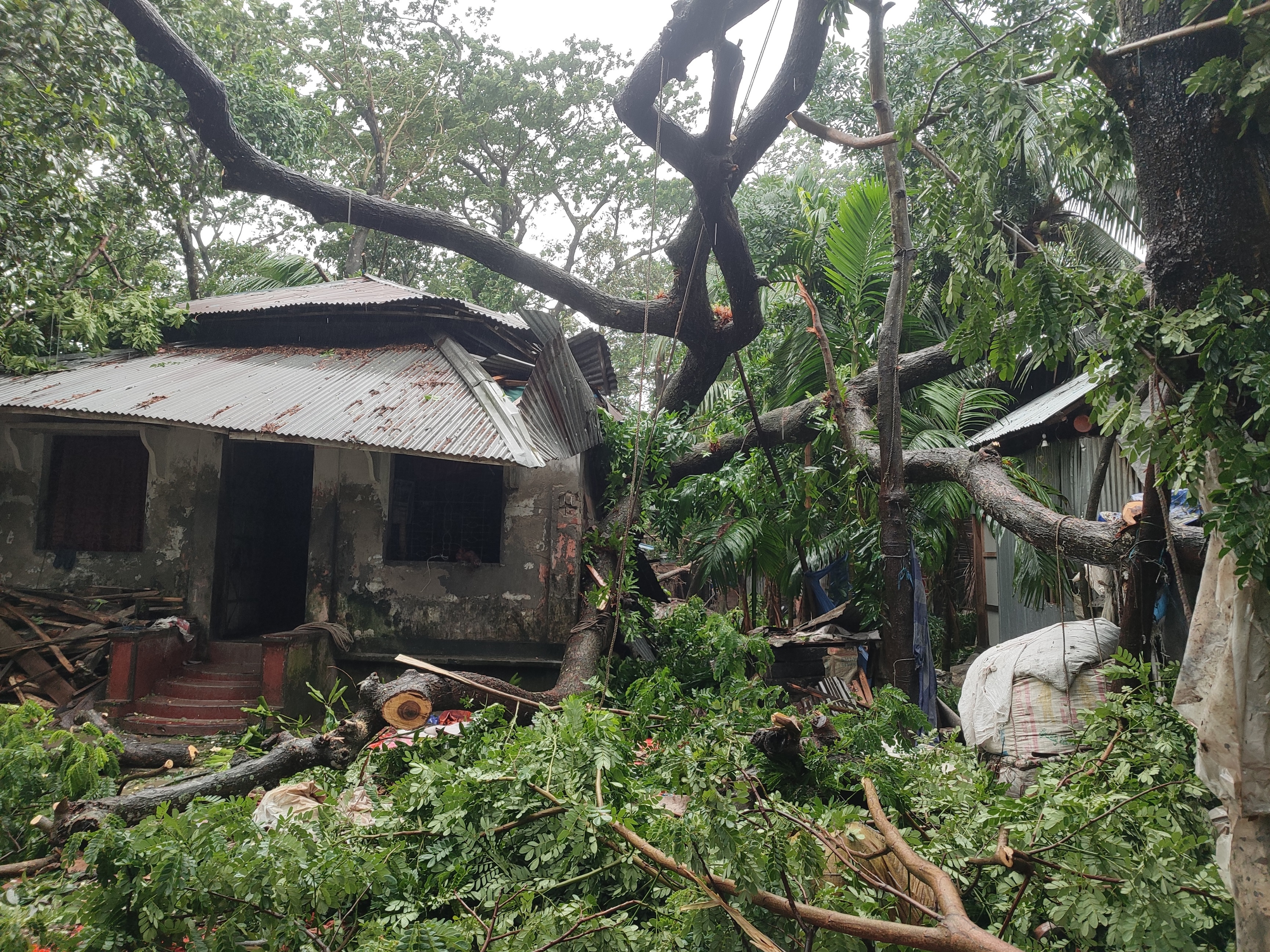Why are so many areas still in the dark?

Every time a cyclone strikes in Bangladesh, large swathes of the affected terrain inevitably suffer from power outages, many remaining in the dark for days on end. We have seen this happen multiple times before, and this time was no different. Cyclone Remal, the first in the region this year, made landfall in Bangladesh on Sunday night. Since then, reports have emerged of how close to three crore people were left without power and 15,000 mobile towers out of service as a result of the tidal surges and fierce winds that accompanied the cyclone. While the authorities have claimed to have restored most of the power connections by now, many areas are still in the dark.
The importance of electricity in the wake of such calamities cannot be overstated. It serves as a lifeline for the affected people, powering essential services including healthcare facilities, water supply systems, and communication networks. Without it, the ability to deliver aid or maintain law and order is severely compromised. Restoration of power is thus paramount not just for returning to normalcy but also for the well-being and safety of the affected communities. This is precisely what is at stake in the cyclone-hit areas where communications couldn't yet be established.
The sufferings of the people were captured in a report by this paper that focused on five districts of Barishal division—Barguna, Bhola, Patuakhali, Pirojpur, and Barishal—where about 50 percent of power connections remained severed till Thursday. The situation in Barguna's Bamna upazila, for example, where uprooted trees and scattered electric cables have rendered roads impassable and homes powerless, is mirrored across many other affected areas. Another report by Prothom Alo highlights the plight of the sixth district of the division, Jhalokati, where angry people held protests demanding power restoration. Without electricity, life almost came to a halt for them.
We, therefore, urge the government, utility companies, and other relevant stakeholders to intensify their efforts to undertake necessary repairs and restore communications, both online and offline, in all the areas without further delay. At the same time, we must address the bigger issue of our perennially weak power transmission/distribution system and infrastructure that get rattled every time a disaster strikes. Experts have blamed weak transmissions systems, the lack of a smart grid, and an ill-equipped National Load Dispatch Centre for the blackouts and power outages in recent years. This needs to be fixed so that we can better withstand future cyclones, minimising widespread outages.



 For all latest news, follow The Daily Star's Google News channel.
For all latest news, follow The Daily Star's Google News channel. 


Comments